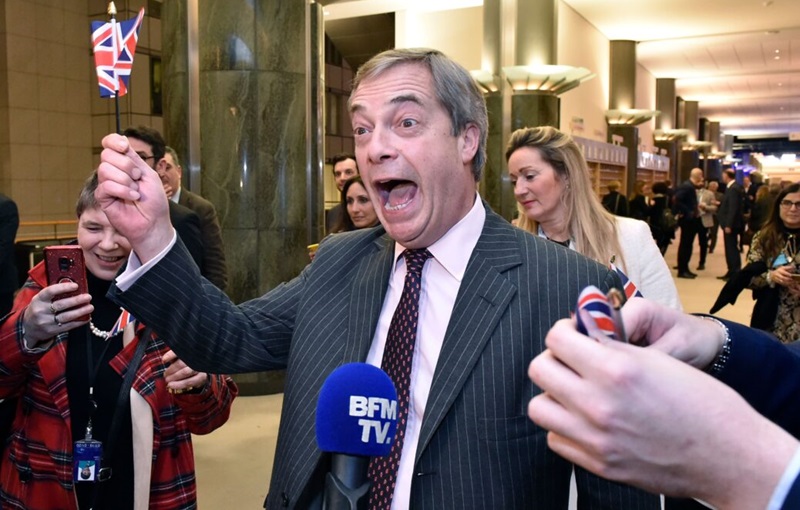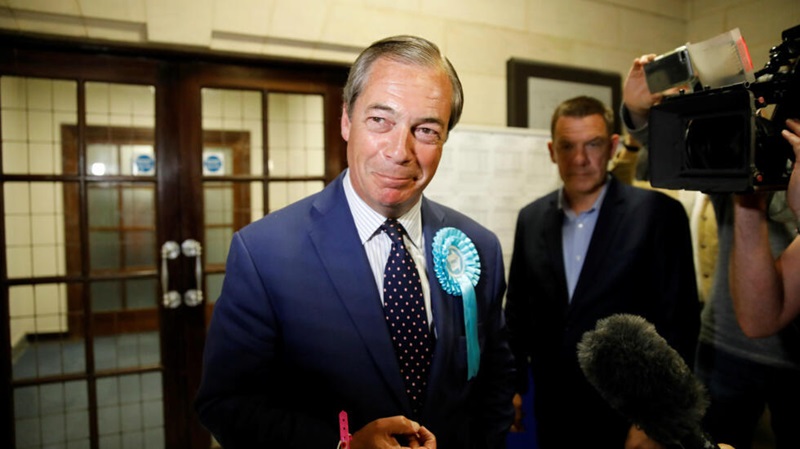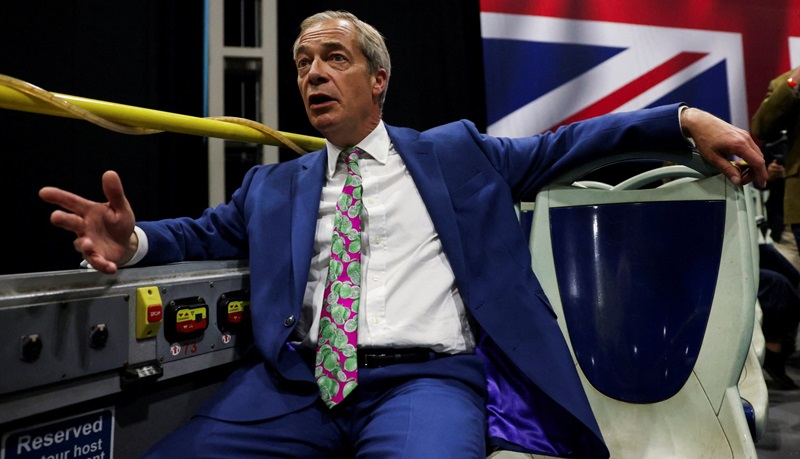Has Nigel Farage Failed at the Final Hurdle? Our Writers Weigh In
The question of whether Nigel Farage has failed at the final hurdle continues to provoke a variety of opinions among our team of expert writers. Some argue that Farage, a prominent British politician known for his charismatic leadership of the UK Independence Party (UKIP) and later the Brexit Party, has indeed stumbled in his political journey. They point to his repeated unsuccessful attempts to secure a seat in the British Parliament, his divisive rhetoric, and his failure to deliver on many of his most significant promises as evidence of his political shortcomings.
Others, however, maintain that Farage’s influence cannot be measured solely through conventional political success. They argue that his role in the Brexit referendum and his ability to galvanize a significant portion of the British electorate demonstrate his enduring impact on UK politics. Despite stepping back from the political front lines after achieving his goal of Brexit, his legacy continues to shape the nation’s political discourse. Farage’s controversial figure thus presents a complex picture where success and failure intertwine, leaving room for a wide range of interpretations.

Analyzing Farage’s Latest Political Moves and Missteps
Analyzing the recent political maneuvers and blunders of Nigel Farage, the former leader of the UK Independence Party, provides intriguing insights into his strategy and mindset. Notably, his attempts to rebrand himself as a non-partisan champion of Brexit have been met with a mixed response. This shift in positioning has been seen as a savvy move by some, positioning him at the heart of an issue that transcends traditional party lines, and simultaneously distancing him from the more controversial aspects of his previous political affiliations. However, it has also drawn criticism, with detractors arguing that Farage is attempting to whitewash his past and that his newfound stance is more about opportunism than principle.
Furthermore, his decision to launch a new political party, the Brexit Party, ahead of the European elections was a high-stakes gamble that initially paid off, with the party securing a significant number of seats. However, the lack of a clear plan beyond achieving Brexit has led to questions about the party’s longevity and Farage’s leadership. This was further exacerbated by his decision to stand down most of his candidates in the 2019 general election, a move seen by many as a capitulation to the Conservatives and a betrayal of his party’s supporters.
Farage’s public appearances and messaging have also been scrutinized. He has been accused of using divisive rhetoric, especially around immigration and national identity, which has stirred controversy and resulted in accusations of fear-mongering. However, he has also demonstrated a knack for tapping into public sentiment, particularly among those who feel left behind or ignored by the political establishment.
Overall, Farage’s latest political moves and missteps paint a picture of a complex, controversial figure. They reflect a man who is undeniably astute and charismatic, capable of inspiring devotion among his followers, yet whose tactics and motivations continue to polarize opinion. His ability to influence the political landscape, despite his critics, is undeniable, but the long-term impact and legacy of his actions remain to be seen.
Expert Opinions: The Implications of Farage’s Recent Actions
Experts are voicing their interpretations on the implications of Farage’s latest maneuvers. The prominent Brexit advocate and former UKIP leader has always been a polarizing figure, with his actions and speeches often stirring considerable controversy and debate. His recent activities, however, have ignited an even more intense discourse among political analysts, policy makers, and the general public. By aligning himself with anti-lockdown protests and questioning the efficacy of COVID-19 restrictions, Farage has positioned himself against the majority scientific consensus, causing a rift between the public and scientific community. This has led to concerns about the spread of misinformation and the potential undermining of public health efforts.
Farage’s decision to rebrand the Brexit Party as Reform UK, with a focus on anti-lockdown policies, has also led to speculation about his political ambitions. Some experts believe that he is attempting to establish a unique political space that caters to a specific demographic: those dissatisfied with the government’s handling of the pandemic. This could potentially fragment the UK’s political landscape further, leading to increased polarization and instability.
His recent actions have also raised questions about Farage’s influence on public opinion and policy direction. With his significant following, he possesses the ability to shape the narrative around COVID-19 restrictions and other significant issues, potentially leading to shifts in public sentiment and policy. However, critics argue that this influence could be detrimental, especially if it’s used to promote misinformation or encourage actions that undermine public health and safety.
Overall, the implications of Farage’s recent actions are vast and multifaceted, impacting everything from public health to the political landscape. As he continues to navigate these contentious issues, experts will undoubtedly continue to scrutinize his moves closely, analyzing their potential impact on the UK and beyond.

Farage’s Political Journey: A Close Look at His Challenges
Nigel Farage’s political journey has been a labyrinth of challenges and triumphs. Commencing his political voyage with the UK Independence Party (UKIP), Farage’s main agenda was to advocate for Britain’s exit from the European Union (EU). This was not an easy task as it involved convincing majority of the citizens and politicians that Brexit was advantageous for the UK. Farage’s key difficulty was combating the prevalent pro-EU sentiment among many Britons and politicians, who feared the economic and social repercussions of leaving the EU. He also faced resistance from those who saw UKIP as a fringe party, with mainstream media often dismissing his party’s perspectives.
In his pursuit, Farage encountered numerous personal obstacles as well. His outspoken nature and controversial statements often provoked criticism and even threats, requiring him to get security detail. He also survived a plane crash during a campaign event in 2010, a terrifying incident that underscored the physical dangers he faced.
Despite these impediments, Farage proved to be a resilient and strategic politician. He succeeded in shifting public opinion and won a significant number of seats for UKIP in the European Parliament, increasing the party’s influence. His relentless campaigning also played a critical role in securing the 2016 Brexit referendum, marking a significant milestone in his political journey.
Post-referendum, Farage faced a new set of challenges as he navigated the complex process of Brexit implementation. He had to manage intra-party disputes and fend off accusations of populism and xenophobia. Currently, Farage’s political journey continues to be filled with adversity as he grapples with maintaining his relevance in the post-Brexit political landscape. Nevertheless, his enduring influence on British politics attests to his fortitude amidst the challenges he has faced.
Is This the End for Farage? Perspectives from Our Writers
While many have often wondered whether Farage’s career is in its twilight, our contributors have shared diverse perspectives, adding rich texture to the conversation. Some believe that Farage, having navigated numerous political storms, has the tenacity to endure. They cite his resilience and ability to bounce back, coupled with his unique appeal to a certain demographic.
Farage, they argue, has a knack for staying relevant, often by aligning himself with contentious issues that evoke strong sentiments. However, other contributors argue that Farage’s influence is waning and that he is increasingly being viewed as out of touch. They suggest that his controversial stances and divisive rhetoric have eroded his support base. Furthermore, they argue that a younger, more progressive demographic is emerging, less susceptible to Farage’s brand of politics.
There is also speculation about his ability to navigate an ever-changing political landscape, with some questioning whether he can adapt to new challenges or if he will become a relic of a bygone era. Ultimately, only time will reveal Farage’s political fate. Yet, these divergent perspectives highlight the complex and multifaceted nature of Farage’s career, suggesting that any attempt to predict its end may be premature.

What Farage’s Stumble Means for His Future and Legacy
Nigel Farage’s recent stumble, especially with his controversial Brexit Party movement, has certainly raised many questions regarding his future political prospects and legacy. His commitment to the Brexit cause has been undeniably steadfast, but the perceived failures and inconsistencies that have marked his journey may have lasting implications.
Farage’s reputation has been forged in the furnace of divisive politics, with many viewing him as a figure of disruption and dissent. Nonetheless, his impact on the UK’s political landscape cannot be easily dismissed or overlooked. His recent stumble, however, may have tarnished his image as a political maverick. Critics argue that his perceived lack of consistency and strategy, coupled with his sometimes inflammatory rhetoric, has undermined his credibility.
This, along with the Brexit Party’s underwhelming performance in recent elections, has left many questioning whether Farage’s influence has peaked. His future now appears uncertain, with some suggesting that his political career may be on a downward trajectory. Despite this, Farage’s legacy is secure in the sense that he played a pivotal role in one of the UK’s most significant political changes — the decision to leave the European Union.
Nevertheless, the full impact of that decision, and Farage’s role in it, continues to be a contentious issue. Ultimately, Farage’s recent stumble presents a crucial turning point. It will either mark the beginning of his decline or serve as a catalyst that spurs him to adapt, evolve, and continue to shape the UK’s political narrative in his unique, controversial style.
